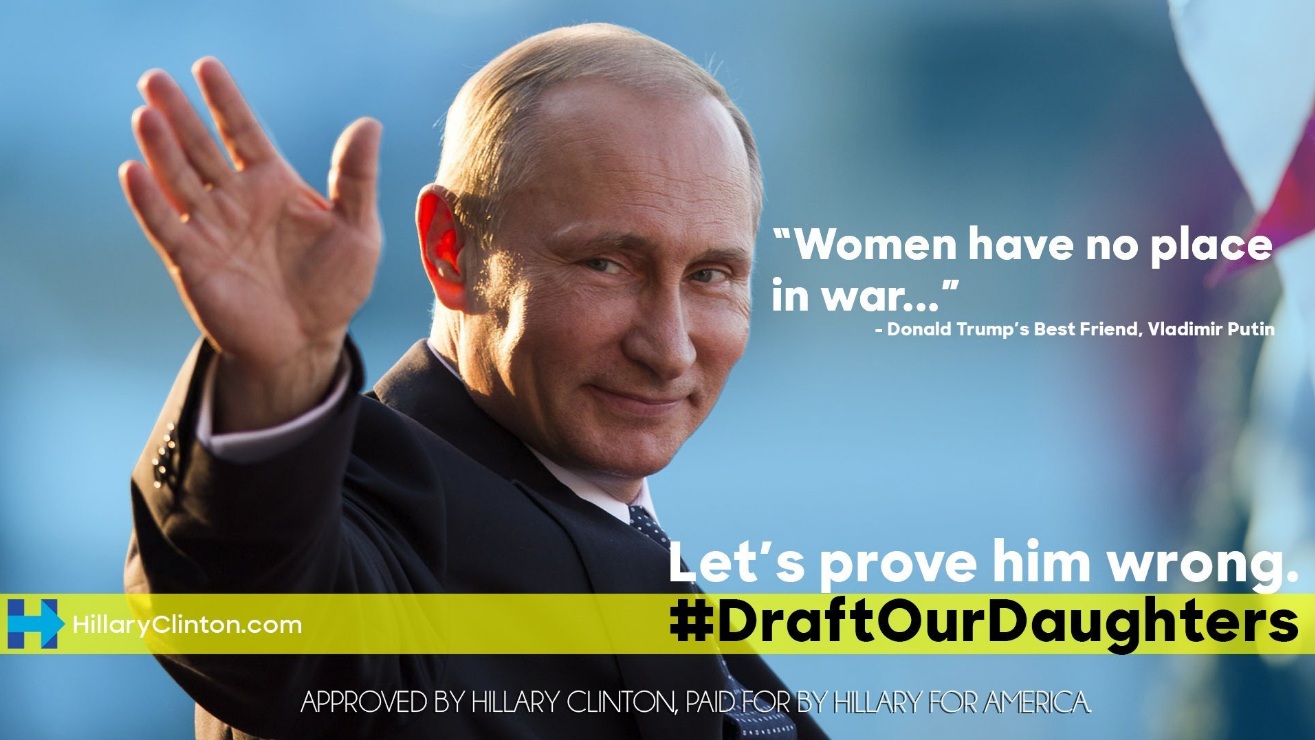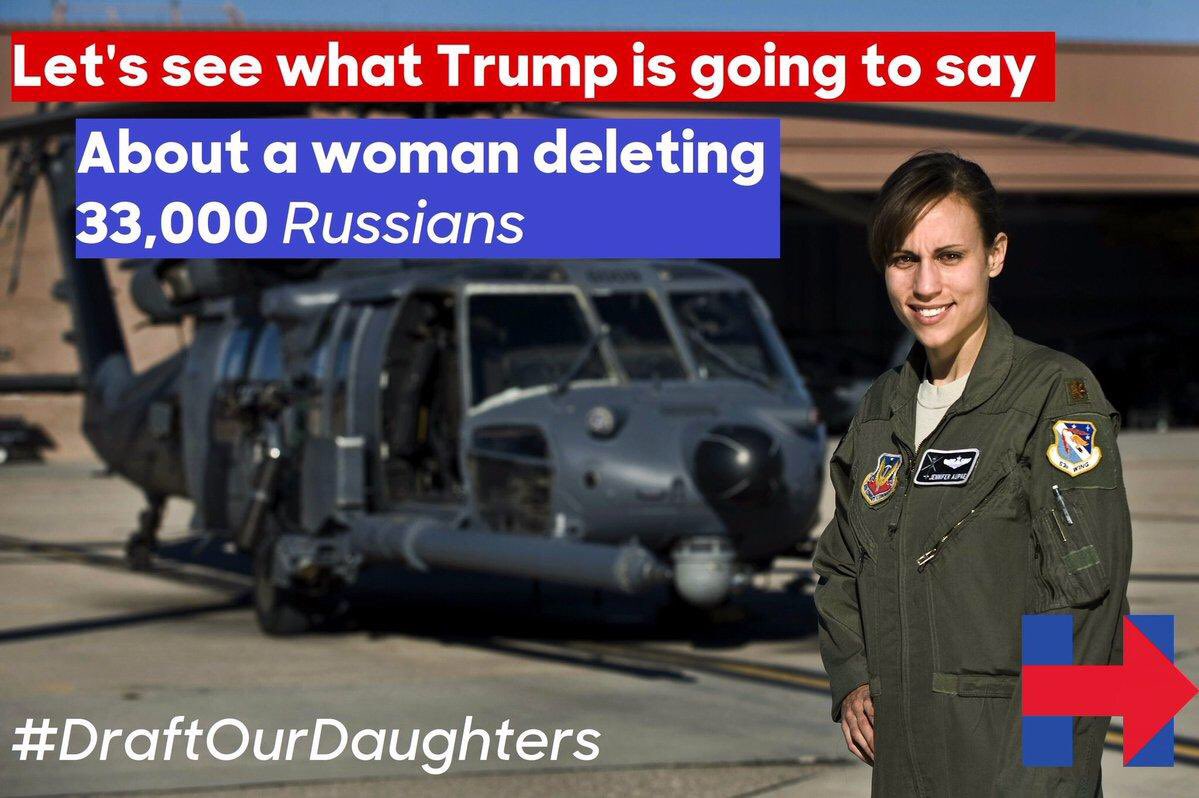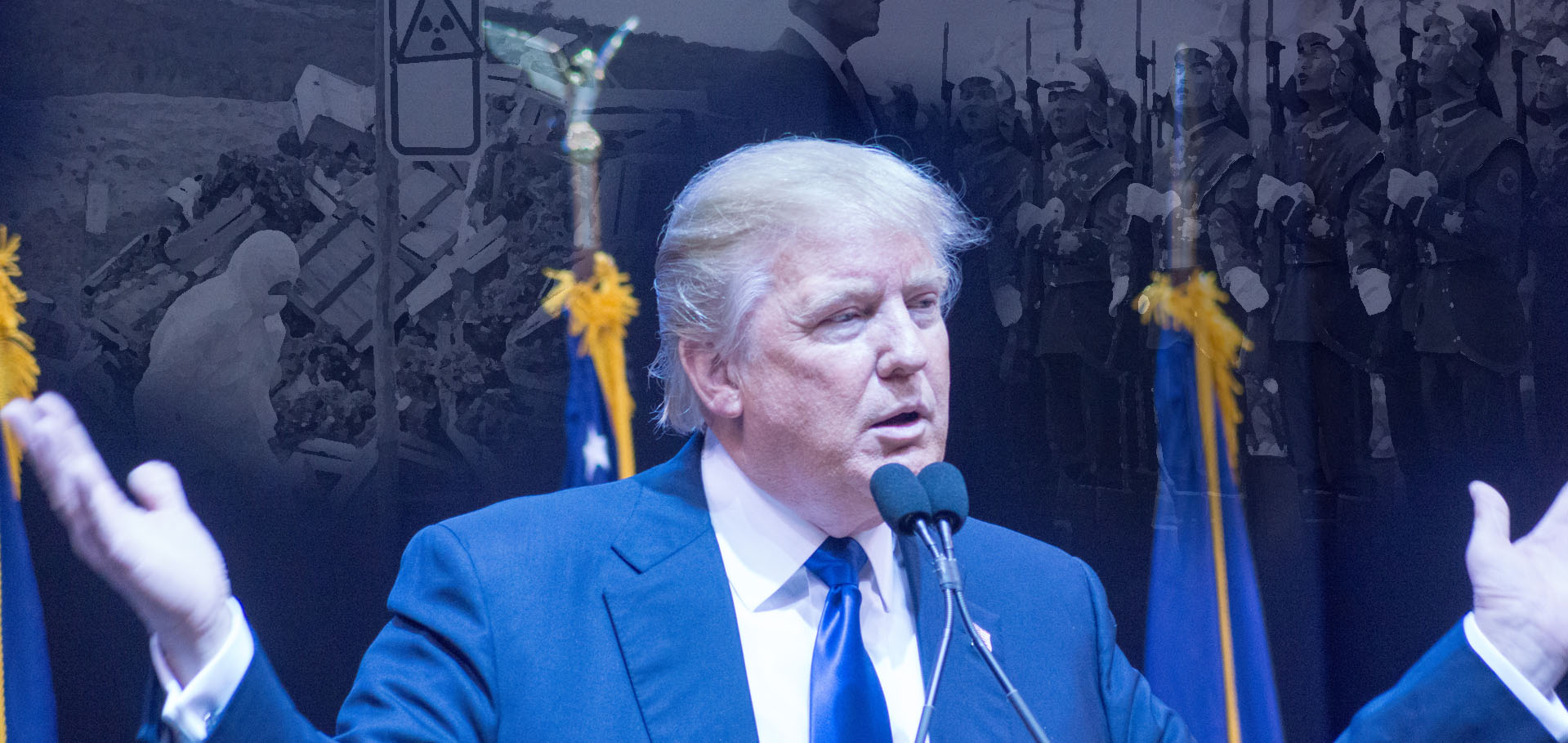Monthly Archives: October 2016
A guest-post by Maddie Fitzgerald
I have always been against Trump. I consider him vulgar and unbefitting of the office of the presidency. But sorry, I just need to take a moment to tell everybody to get a grip. It’s not about defending him. I don’t like him. I just feel compelled to respond to and defend him from every single criticism from the media.
The media. Remember them? You should never forget that they hate not just Trump, but all Republicans. that’s why it’s extremely important that Republicans take a stand against media criticisms that are used against Trump today, but might be used against Trump tomorrow. I don’t want to defend Trump, believe me, but somebody has to keep the media in check.
The latest example is Trump’s comments about setting up internment camps for Mormons. Yes, this sounds bad. But the important thing to remember is that the internment camps were originally put in place by FDR, a Democrat. Yes, internment camps are wrong, but where were they then? Is this really an objection to internment camps, or is this just an objection to the fact that it’s Donald Trump, and not their icon, that is proposing it? Nobody is asking this question because everybody is too busy freaking out over what was really just Trump floating an idea. Compare this to Democrats, who have actually implemented policies that would put Mormons in prison if they refuse to bake wedding cakes for gay couples (and refuse to pay fines). I’m not at all in favor of Trump’s proposal, but let’s get real: Are we really supposed to believe that it’s Donald Trump who is against religious freedom here?
This is on the heels of Trump’s previous comments about dropping nuclear bombs on cities that vote against him. Once again, the elites and media are taking a legitimate criticism (that it would be had for a president to drop nuclear bombs on American cities) and blowing it completely out of proportion. Once again, the media is responding to Trump literally and unseriously. Obviously, Trump is not going to detonate a bomb on an American city. Hillary Clinton called tens of millions of Americans deplorable while everybody freaks out over an off-the-cuff hypothetical annihilation of Chicago.
More than anything, however, it was the story about taking CNN’s Leigh Horvit “behind the shed” and “having her shot” that caught the media’s attention. Lordy, lordy, is there anthing the media won’t try to make themselves the story of? First and foremost, the news cycle has to be about them as much as possible. Trump is threatening to kill a lot of people at any given time, and while the media panics every time, when it’s their lives that are threatened they take it to a whole new level of hysterics. Even while Hillary Clinton was refusing to grant press conferences, the media became positively fixated on loose chatter of putting newspapers out of business and having reporters shot.
Frankly, it has grown tiresome to watch conservatives fall into the liberal media narrative over and over again. They ask leading questions like “Are you concerned about your lack of Mormon support?” and get the answer they were hoping for. It may be Trump’s fault for failing to avoid the minefield, but the media are the ones laying the lines. Conservatives usually know better, but they are so wrapped up in their Trump-hatred that they can’t see the obvious.
I’m really not saying all of this to defend Trump. I am simply concerned over the degree of deference we’re giving to the press here. Right now a lot of you think it’s okay because it’s Trump, but what happens the next time a conservative talks about removing disfavored minorities from society? The media is going to use this as an example of why it’s wrong, because that’s their way, and conservatives are just handing it to them.
This meme factory product is weirdly compelling:
It’s hard to explain why, precisely. As Michael Brendan Dougherty says, it gets a transistor in the brain and plays with it. He also suggests that some of the Russia hate is culture war, though I don’t think that’s quite right. I think it’s mostly… politically convenient. Which is disturbing in its own way. I’ve disliked Putin and believed him troublesome going way back to when George W Bush said he saw an honorable soul in him. I didn’t think Romney was ridiculous in 2012 when he named them our #1 geopolitical rival. At the same time, there’s this.
Ironically Comey put himself on the same side as Putin.
— Howard Dean (@GovHowardDean) October 29, 2016
Which I think Lyman manages to nail on the head:
Guys I really love the "anything bad for Clinton is a Russian plot" meme. Definitely a positive political development. https://t.co/3bnAH3GDwy
— Lyman Stone (@lymanstoneky) October 29, 2016
Though there were some interesting connections early on, Donald Trump is not an agent of the Kremlin. He is likely to pursue policies that are friendly to the Kremlin and that would represent a very unwelcome pivot, but the upshot is that he would avoid war with Russia (and not by nuking Mongolia) and that’s not such a bad thing. I don’t think Clinton would take us to war against Russia unnecessarily, but the turning up the temperature is not helpful. And if it were Mitt Romney doing it, even with the data set we currently have (as opposed to four years ago), a lot of people would be freaking out.
I think a lot of people are going to feel pretty silly for the sheer degree of bear-baiting they did this election. At least, I kind of hope so.
For me it’s Johnson vs. Clinton. I know Johnson isn’t going to win and I believe Clinton will probably win.
The advantage with voting for Johnson is that the more votes he gets, the more some of the issues I like will be highlighted, like decriminalizing drugs, ratcheting down police militarization, promoting civil liberties more robustly, and evincing skepticism about policies that might lead the US into another land war in Asia. It will also remind Clinton (assuming she wins anyway) that she needs to fight for our votes.
The disadvantages. Aspects of Johnson’s message I don’t agree with might be highlighted even more. I’m not too keen on decreasing the size of the federal government in the way that he’d probably do it. I don’t know of any explicit statement he’s given on Obamacare this election cycle, but I assume he’s hostile to it and is likely to want something much different from me.
More important, this election requires me to take a stand against Trump in a way that I haven’t really had to take a stand against a major party presidential candidate before. While in general Johnson may take away more votes from Trump than from Clinton, in my case a vote for Johnson takes away a vote I would have cast for Clinton. A vote for Clinton is a repudiation of Mr. Trump in a way that a vote for Johnson isn’t.
It’s always comforting to hear that there is no slippery slope, but while campaigners demand graphic warnings on alcohol and researchers look into plain packaging for food, the world’s top nanny states are getting on with the job of transferring anti-smoking policies to other products. San Francisco recently introduced cigarette-style health warnings on cans of pop and Ireland has dipped into the tobacco control playbook for its new idea of ‘booze curtains’.
The Public Health (Alcohol) Bill is a piece of good old-fashioned temperance legislation with the modern twist that the Irish government set up its own sockpuppet lobby group specifically to campaign for it. It includes a sky-high minimum price of €1 and extensive advertising restrictions. As the Department of Health explains, the aim is to ‘reduce visibility, accessibility and availability of alcohol’. To that end, it wants to protect shoppers from the untold trauma of seeing beer and wine in convenience stores.
Source: Velvet Glove, Iron Fist: The alcohol display ban – another slip down the slope
Steve Chapman explains how tobacco companies core business remains cigarettes. From there, he gets here:
There is now a small group of experts in public health who are now openly or covertly collaborating with the tobacco industry over e-cigarettes. They are being comprehensively played. In mouthing its newfound concern for tobacco’s harms, the industry’s harm-reduction division personnel can now cosy up to a suite of naïve or historically amnesic public heath urgers who lend Big Tobacco a credibility it craves.
Meanwhile, down the Big Tobacco corridor in the cigarette divisions, the harm-reduction staff’s colleagues continue promoting smoking and attempting to thwart effective tobacco control as usual.
Notably, the link goes to the Times article that has launched lawsuits and has resulted in at least one apology from the Times:
The irony here, of course, is that Chapman and “Big Tobacco” are on the same side here, more or less. Both see ecigarettes as a threat to their respective interests. It’s probably that one of them is wrong, however. Most likely it’s Chapman. Chapman, as do many anti-vaping advocates, frames ecigarettes as the latest attempt by Big Tobacco to sell a not-safer product (like low tar cigarettes). This leaves aside some important things, such as that ecigarettes were largely started by third-parties and coopted by ecigarette companies.A group of scientists and public health experts are to take legal action against the Times newspaper after it reported claims from a leading charity that they were in the pay of the tobacco industry.
The experts, who work in fields that aim to limit deaths and health complications caused by smoking, are looking to sue the Times for defamation following a story that termed them “experts making a packet”.
The Times has published an apology to one of the scientists cited, Clive Bates, the former head of Action on Smoking and Health. The correction stated that he had funded his own travel and accommodation costs at an industry-sponsored tobacco forum in Brussels and had not received any funding from tobacco or nicotine companies.
But other scientists say that the same apology was not extended to them and they claim they have been falsely accused of accepting “tens of thousands of pounds from tobacco companies to carry out research into e-cigarettes”.
Lewis Silkin, a legal firm specialising in libel, will be acting on behalf of five scientists, including professor Karl Fagerström, an expert in addiction science. “My life’s work has been built on helping reduce the death toll from tobacco smoking. Yet The Times has portrayed me and my colleagues as hirelings of big tobacco,” he said. “The Times has chosen to traduce our reputations. Now it is time for the paper to profusely apologise or face a battle it will not win.”
What Chapman fails to investigate is why Big Tobacco doesn’t view vaping as its future. There are multiple answers, most of which don’t really correspond with what he’s saying. For example, ecigarettes may not be as addictive as cigarettes, therefore the customer base is less captured. There is also the fact that, contra the picture he paints, many big market participants aren’t tobacco companies and so the competition is more stiff., which would indicate that Big Tobacco’s cigarette margins remain as high as they are because tobacco controllers have placed enormous barriers to competition.
I do actually share Chapman’s concerns that Big Tobacco want ecigarettes to function primarily as a dual-use bridge. A future in which Big Tobacco controls the industry is one in which ecigarettes likely remain weak and comparatively ineffectual as quitting aides. It’s just a shame that the FDA has so recently made their job a lot easier. With innovation stifled, it may become harder to have a real cigarette replacement.
Both Chapman and Big Tobacco are fine with that.
About a month ago, Megan McArdle goes over the many problems with Obamacare and as usual, while I support the policy, I fear that too many of her critiques are spot on. While discussing possible solutions to those problems, she mentions two options:
“repeal and replace” (or at least gut renovate the system so that it functions as originally promised), or tweak regulations and hope that’s enough. From a policy perspective, “repeal and replace” obviously seems to be the way to go; no one really likes the kludged-together system created by the Patient Protection and Affordable Care Act, and either Republicans or Democrats could design something that worked more rationally. However desirable this might be from a policy perspective, though, it’s even less plausible than legislative tweaks politically. Undoing what was done in 2010 would involve either repealing things that people like — like the ban on lifetime caps, and exclusions for pre-existing conditions — or moving toward something people don’t like, such as heftier mandates or government providing health care directly.
That leaves us regulatory tweaking. The good news about this is that it’s largely invisible to voters, which lowers the political barriers to change. The bad news is that there’s only so much tweaking regulators can do within the law (or even by skating outside it). This is the easiest option, but it’s also the weakest, and the least likely to work. Nonetheless, that’s what we’re going to end up doing, no matter who gets elected president.
To riff a little off that first quoted paragraph, one thing that’s bothered me about the “repeal and replace” mantra is that while it’s at least plausible that a Republican Congress and a Republican president might “repeal” the law, I don’t see them following through with the “replacement.” Why not just “replace” it, a move that would effect the repeal they’re claiming to seek?
That’s not a jab against McArdle. Her article is mostly just an excuse for me to sound off on “repeal and replace.” But she does raise problems that those, like me, who support Obamacare need to find some kind of answer for.
Saturday Night Live hit a home run with this one:
The initial response was along the lines of The Hill, wherein it say that Hanks was “mocking” Trump supporters. But the portrayal is clearly affectionate to at least some degree and it really took some blinders not to see that. Or, it takes the assumption of a blue collar cadence as inherent mockery.
Then there was a round of people saying that it was about unity. Which goes off a bit too far in the other direction, because it ends on a bit of a dour note. After forming passerby-relationships with the host and other contestants, the subject of Black Lives Matter (implicitly) came up. Before we can see what happens, the skit ends. Jamelle Bouie describes the importance of the ending well:
Because the bulk of the sketch is this humanizing back-and-forth between Doug, the black host, the black contestants, and the black audience, it’s easy to read the message as a plea for tolerance and understanding. There’s more that unites us than there is that divides us. You can even add a class analysis: Black Americans share more than just common culture with some Trump supporters; they share common interests. There are important limits to this, beyond the universe of SNL: Because of its roots in the South, black culture shares an affinity with the rural white life that Doug represents. It’s not clear this would exist between, say, a black audience and a Trump-supporting professional from outside Milwaukee. But at this point, the sketch’s argument seems barely implicit: We need to work together instead of pitting ourselves against each other.
Then comes the final punchline, “Lives That Matter.” Obviously, the answer to the question is “black.” But Doug has “a lot to say about this.” Which suggests that he doesn’t think the answer is that simple. Perhaps he thinks “all lives matter,” or that “blue lives matter,” the phrasing used by those who defend the status quo of policing and criminal justice.
The only real disagreement I have (except with some slightly different priors) is that I don’t know that they really went into it wanting to make much of a point at all. It was funny because it was intended to be, as opposed to en route to an explanation of the human condition. We assign meaning to it because (for some of us, at least) it rang true. The humor required elements of truth, and it delivered. But beyond that, I think it was mostly a humorous portrayal of the commonality as well as, as Bouie says, the divisions.
TRUMWILL: At the moment, I don’t plan to vote for any Republican this cycle who doesn’t repudiate Trump.
JERRY CALLAHAN: If I’m elected to the State Senate, Unlike my opponent, I will protect our clean water and air by supporting a complete ban on fracking.
TRUMWILL: Hmmm. Well, Larson has my attention now. But still, Trump.
JERRY CALLAHAN: I will fight any and all charter schools to protect our public schools!
TRUMWILL: Trump. Trump. Trump.
JERRY CALLAHAN: While I want to get money out of politics, Erica Larson has an unacceptable fixation on letting non-media people share their political views in the 60-90 days before an election. Vote clean elections, vote Callahan.
TRUMWILL: Well, how much sense does it really make to bundle local and national candidates together? I mean, it’s two different levels of government and state and national Republicans can differ…
JERRY CALLAHAN: My opponent is in the pocket of Big Tobacco, which has recently been targeting our teenagers with e-cigarettes.
TRUMWILL: Are you kidding me?
JERRY CALLAHAN: Larson has a wild plan to relocate the US capital to Nebraska and expand the US House to 6,000 seats. What a nut. Vote sanity, vote Callahan.
TRUMWILL: ARE YOU FU-{Explodes}








